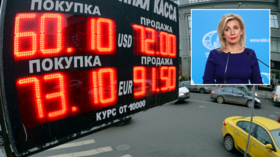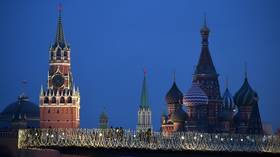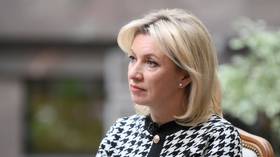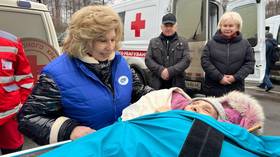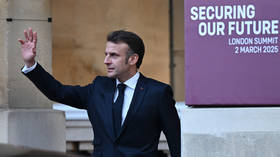Era of isolationism is coming to the world and the end of Covid pandemic won’t automatically unlock borders

During my recent visit to Moscow, one of Russia's best foreign policy experts said something that many of us are thinking but still reluctant to recognize: the world has entered an era of closed borders and restricted travel.
This new age of isolationism will last years, maybe decades. It is the Covid-19 pandemic that has triggered the closure of borders. But the geopolitics of intensifying great-power rivalry may be a more profound cause of this new reality.
Perhaps we should not over-dramatize the shrinking opportunities for overseas voyages. After all, mass international travel is a relatively recent phenomenon that took off in the late twentieth century, peaking in the 2010s. That hundreds of millions of people with middle-class incomes were able to hop on a plane and go to pretty much any destination in the world was one of the most powerful manifestations of globalization.
That was not a completely new thing, though. Just over a hundred years ago, at the turn of the twentieth century, the world was enjoying the fruits of what many historians label as the First Globalization. At that time long-distance travel for migration, business and tourism became widely available thanks to steamships, railways, and liberal border policies by many governments.
My own family was part of that Great Migration when, in the 1900s, my great-grandparents moved to the Russian Far East from Belarus and Ukraine. Back then, Russia’s main Pacific port Vladivostok was a very cosmopolitan place, with foreigners, mostly Asians, comprising half of the city’s population. The retail trade was dominated by the Chinese, vegetables were supplied by Koreans, and the city brothels were run by the Japanese.
The First World War, followed by the Great Depression and the rise of totalitarian regimes, put a cruel end to the First Globalization. In keeping with the global isolationist trends and preparing for war with the Japanese Empire, Joseph Stalin expelled the Asians from the Russian Far East, making Vladivostok a purely Russian fortress.
Major powers may now be driven by the same urge to turn themselves into fortresses as they brace for an epic geopolitical and geo-economic struggle euphemistically called “great power competition.”
To be fair, sovereign nation-states have always been fortresses, but their gates could be kept relatively more open at times. These days, however, the hatches are being battened down and the gates are getting shut down. With growing premonitions of a coming clash, perhaps even World War 3, the instinct is to see foreigners as a potential source of danger who can pose all sorts of existential threats – from carrying deadly viruses inside their bodies to engaging in espionage, subversion and sabotage against a host country.
It is telling that the gradual rolling back of the freedom of cross-border travel, as well as the freedom of communication with foreign countries in general, began even before Covid-19. As just a few examples, the United States started to impose visa restrictions on Chinese nationals, China tightened rules on foreigners in the country, and Russia began to clamp down on organizations and individuals designated as “foreign agents.” The escalating diplomatic conflict between Washington and Moscow has virtually frozen people exchanges between the two countries, with the US embassy in Russia recently announcing that it will stop issuing non-immigrant visas to Russian citizens.
Also on rt.com US Embassy in Moscow to dramatically reduce staff & stop issuing most visas to Russians as mission is banned from employing localsEven if the Covid-19 pandemic ends and no new deadly diseases follow in its wake, it is unlikely that the freedoms of global travel and communication will be restored in the foreseeable future. The Hobbesian fear, mutual mistrust and sense of insecurity, will likely continue to push the world’s leading powers and blocs to build up the walls of their fortresses. It doesn’t necessarily mean that international travel will die out completely. Russians may still be able to go to Turkey’s beaches, that is, when Moscow and Istanbul are not at each other’s throats. The Chinese could spend vacations in North Korea, Thailand or Cambodia. Americans and Europeans will probably manage to maintain the trans-Atlantic routes. But overall that will be a very compartmentalized and highly restricted world.
As some prominent Russian pundits argue, the end of the era of global travel should have beneficial effects for Russia’s economy, helping to boost the domestic tourism industry. They argue that the new paradigm for Russia should be “splendid isolation” and self-sufficiency in as many areas as possible. There are even proposals, coming from high-ranking officials in Russia, to levy an “exit tax” on those Russians who still wish to go abroad for their vacations. That would ensure the $36 billion that Russian travelers used to spend abroad would be spent at home.
Freedom of travel across borders is something most people can live without, especially in big countries like Russia, the US or China. But still I feel for the younger generation who may never live the excitement of discovering foreign lands and cultures. Contemporary Russian youngsters may never see Notre-Dame de Paris and enjoy the hustle and bustle of Times Square, just as American youth may never get to experience Moscow or take a selfie atop the Great Wall of China.
Also on rt.com Brussels says EU states should reopen to foreign travel… but only for those who have been jabbedWhen I was a kid in the early 1980s, one of my favorite pastimes was studying a world atlas. I would look with fascination at the maps of foreign countries, learning by heart the names of their capitals and cities. I was especially enchanted with the map of the US state of Hawaii, perhaps because the name of its capital, Honolulu, sounded so exotic and appealing. Being a Soviet boy from an ordinary family, I knew that I would probably never be able to go abroad. And my trip to Hawaii was as likely as a voyage to Mars. It turned out I was wrong. Two decades later I found myself strolling along Waikiki beach in Honolulu and, since then, have made countless trips to America, Asia and Europe. Which gives me some hope that the present-day kids in Russia, China, America and other nations will live to see the end of great-power isolationism and will be able to travel freely again.
Like this story? Share it with a friend!
The statements, views and opinions expressed in this column are solely those of the author and do not necessarily represent those of RT.




